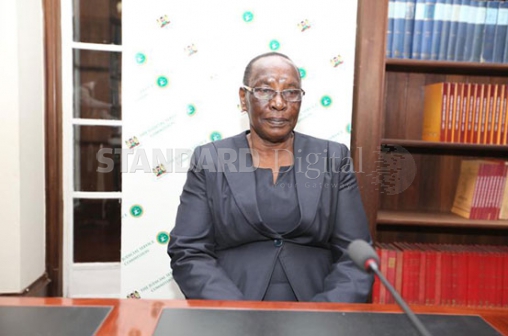×
The Standard e-Paper
Kenya’s Boldest Voice

Judicial Service Commission (JSC) members wound up their interviews for a replacement of former Chief Justice and President of the Supreme Court Willy Mutunga, and retreated to pick the lucky man or woman.
Yesterday, the commissioners concluded interviews with 11 candidates fielding questions on their professional competence, personal integrity and views on judicial reforms and administration of justice.